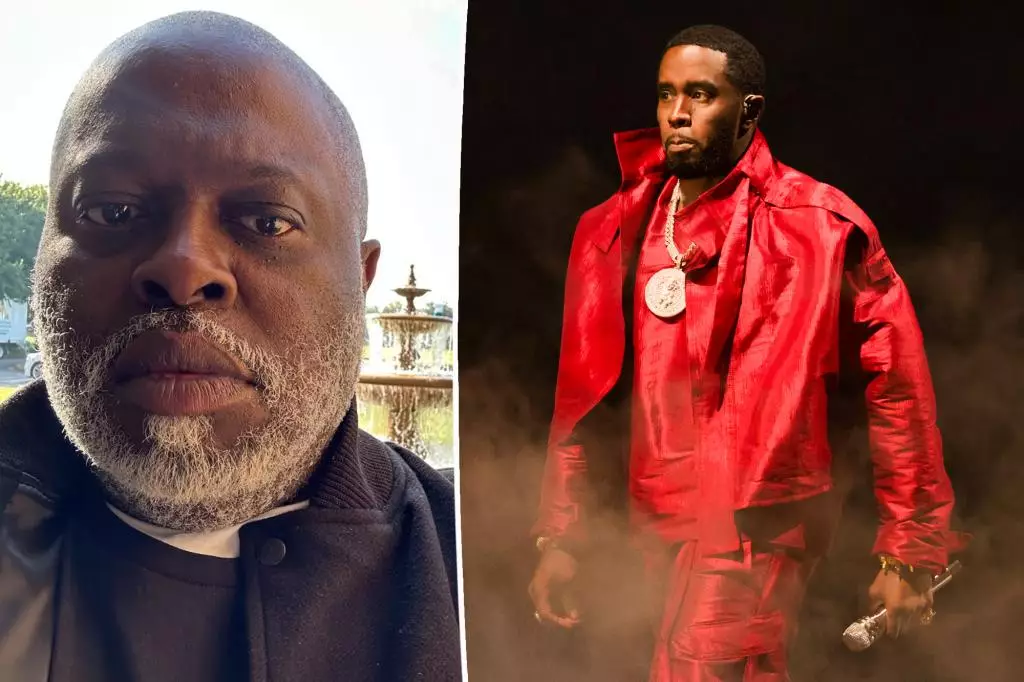In an era dominated by social media narratives and rapidly disseminated information, the case surrounding Sean “Diddy” Combs highlights the consequences of false allegations and media amplification, leading to a defamation lawsuit filed by the mogul. This legal battle not only serves as a scrutiny of individual reputations but also raises fundamental questions about journalistic responsibility and the ethics of media reporting.
Sean Combs is a household name in the music industry, known for his myriad contributions as a rapper, producer, and entrepreneur. However, his fame now contrasts sharply with a tarnished reputation following serious allegations involving sexual misconduct and trafficking. The lawsuit targets Courtney Burgess, Combs’ former associate, who allegedly claimed to possess incriminating tapes involving Combs and other celebrities. Burgess’s attorney, Ariel Mitchell, has purportedly lent credibility to these claims, which were subsequently aired by NewsNation, a network under the umbrella of Nexstar Media Inc.
The core of Combs’ complaint lies in the accusation that Burgess fabricated allegations, stating ownership of videos that purportedly depict criminal activity involving Combs and minors. Such explosive claims, if unchallenged, have the potential to inflict irreparable harm on personal and professional identities, underscoring the disparity between the innocence presumed in a legal context and the public perception shaped by media narratives.
At the heart of the lawsuit is the assertion that no such video evidence exists and that both Burgess and Mitchell acted with negligence, or worse, malice. The legal landscape surrounding defamation claims generally requires the plaintiff to prove that the statements were false and harmful to their reputation. Combs’ legal team contends that Burgess repeated these false claims multiple times to various media outlets, effectively broadcasting rumors that have reached millions.
This raises a critical dialogue on the nature of defamation in public figures. While celebrities often face heightened scrutiny and sometimes endure unfounded allegations as an occupational hazard, the stakes increase significantly when the accusations involve criminal misconduct. Combs’ lawsuit could set a precedent, emphasizing the necessity for accountability among attorneys and media outlets that perpetuate unverified claims.
NewsNation’s involvement raises essential questions about the responsibility of media outlets in verifying information before dissemination. In an age of fast news cycles and viral content, there is an increasing pressure to break stories rapidly, often at the cost of diligent fact-checking. Combs’ lawsuit implicates NewsNation as a participant in the purportedly reckless actions of Burgess and Mitchell by airing claims they knew, or should have known, to be false.
The outcomes of this legal confrontation may elucidate the boundaries of journalistic integrity. In a digital world where sensationalism often trumps facts, how media narratives are constructed can have long-lasting consequences on the lives of those in the public eye. Will this case encourage stricter verification processes? Only time will tell.
While the specific allegations concerning Burgess, Mitchell, and NewsNation are noteworthy, the overarching themes that emerge from Combs’ situation reflect wider societal issues. Allegations levied against prominent figures invariably evoke discussions surrounding toxic masculinity, exploitation, and the safeguarding of vulnerable populations, particularly women and minors.
Moreover, the alleged behaviors outlined in Combs’ indictment—if proven true—hold severe implications for the perception of power dynamics within the entertainment industry. The environment that allows such claims to flourish may subtly endorse a culture of silence around abuse and trauma. As Combs prepares for a trial set for 2025, the discourse surrounding allegations of abuse, whether substantiated or fabricated, continues to reverberate within the larger societal context.
As the saga unfolds, the necessity for public figures to remain vigilant and proactive in defending their reputations becomes evident. Combs’ lawsuit could serve as a cautionary tale not just for him, but for all celebrities, about the importance of being prepared for the intersection of media, law, and public perception. While the legal actions may provide a path to reclaim dignity and dispel falsehoods, they also reflect the broader fragility of celebrity status amidst the relentless scrutiny of public life.
The intricate layers of Sean “Diddy” Combs’ defamation lawsuit highlight a complex interplay between personal reputation, legal justice, and media responsibility. As developments unfold, audiences and industry insiders alike may find themselves pondering the boundaries of truth, the consequences of rumor, and the essential role of accountability in both media and public figures.

